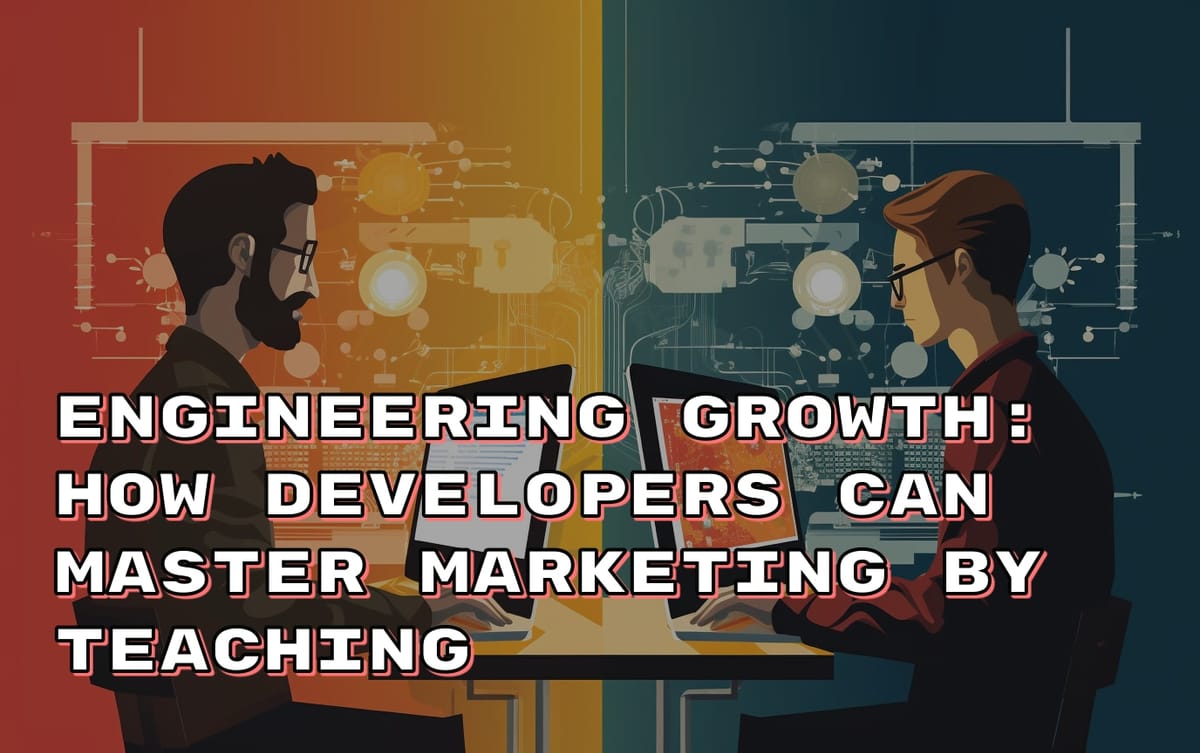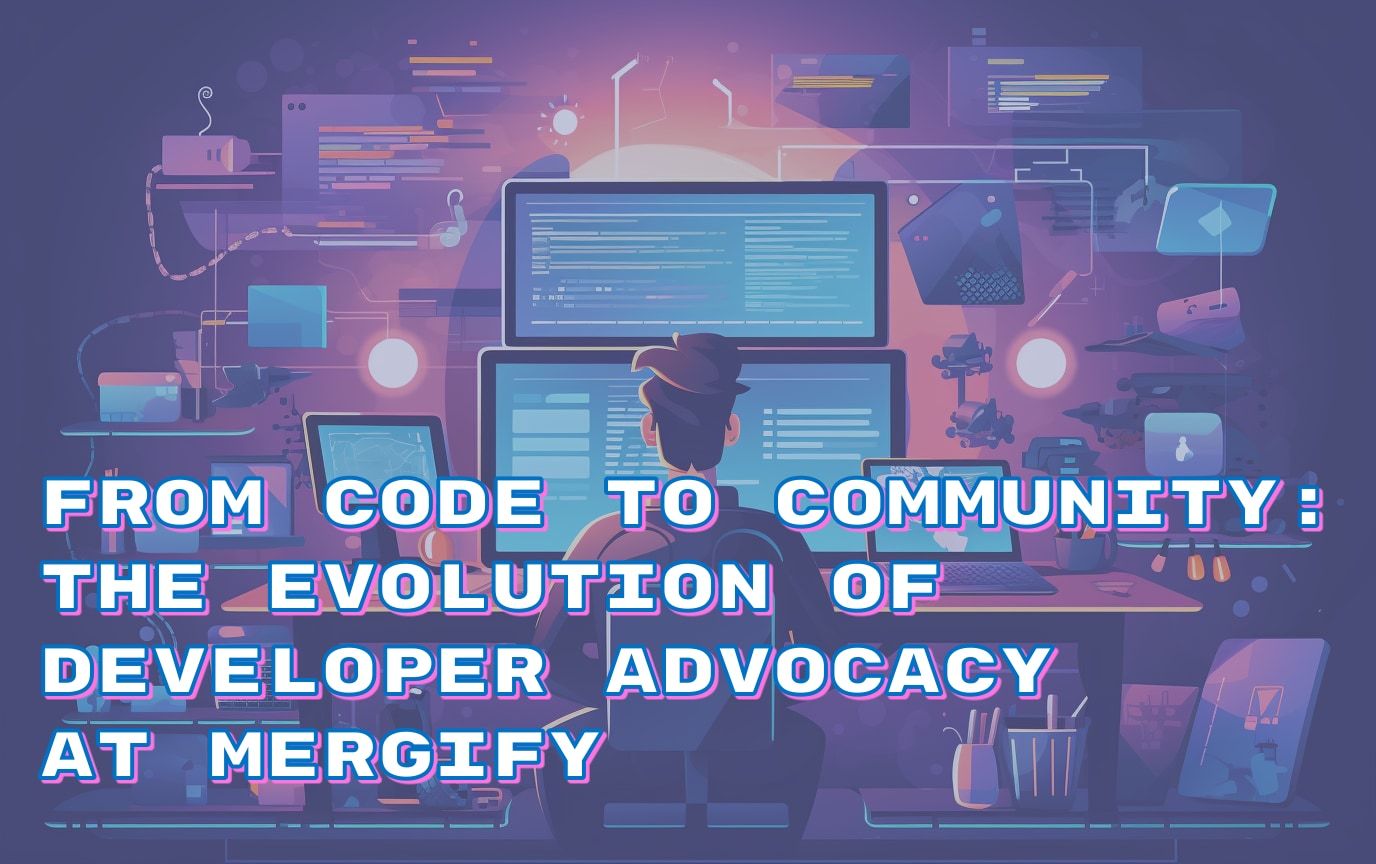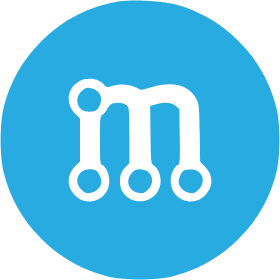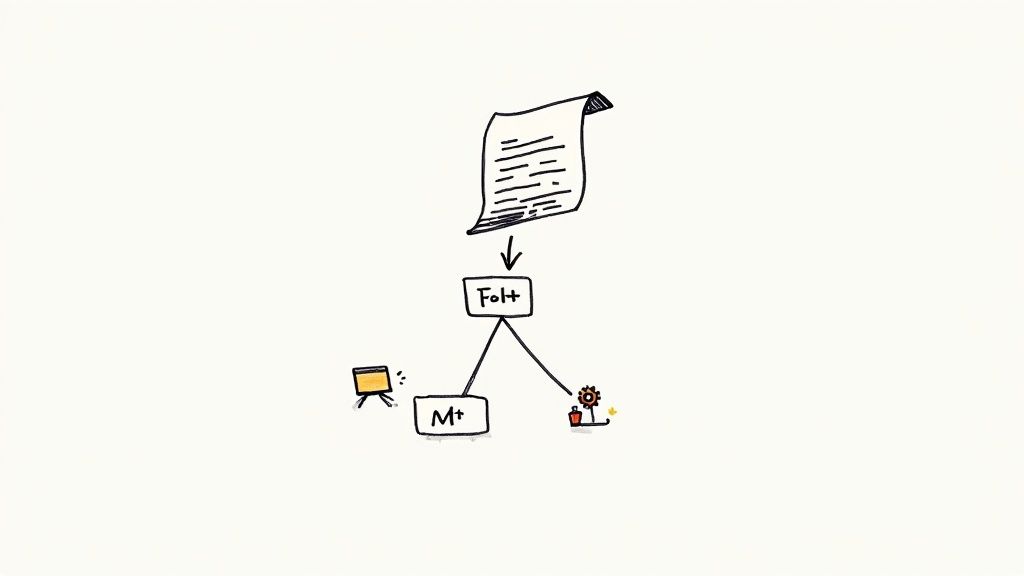Engineering Growth: How Developers Can Master Marketing by Teaching

As engineers, we're programmed to think logically, to dive headfirst into complex problems, to find solutions, and, ultimately, to build. But when we transition from engineering to the thrilling world of startups, we find ourselves in unfamiliar territory, needing to acquire a new skill set — one that includes sales and marketing. As the co-founder of Mergify, a SaaS startup, this reality hit me head-on, and I needed to learn and adapt quickly.
Developer-Founders: Leveraging Expertise as Growth Fuel
Back in 2018, my co-founder Mehdi and I set off on a new adventure: we called it Mergify, a platform made to ease developers' lives. Mehdi and I are both engineers, having met more than a decade ago at a startup that was eventually acquired by Red Hat in 2014. With our heads full of tech smarts and hearts beating with excitement, we dove right into making our product. We didn't realize then how essential components like product-market fit, growth, sales, and marketing were for a startup to thrive. Our goal was straightforward: we wanted to show the world our product was worth it and could bring in some cash.
When you're bootstrapping a venture, you're pretty much painting a picture that's all about struggle. It's no secret that when you have a team of engineers at the helm, the focus can often be too heavy on technology. This is precisely where we found ourselves during the first year. Day in and day out, we were absorbed in building things, throwing in new features, and coding. It was like we were in our own tech bubble, and when it burst, we were hit with the reality of the necessity of sales and marketing.
The year 2019 was a turning point. We made the pivotal decision to split our roles, a move that became the cornerstone of Mergify's success. We acknowledged the truth that you can't have two CTOs or two CEOs. What we needed was a balance – someone to keep an eye on the tech and someone else to focus on the non-tech stuff.
Transitioning from Coding to Marketing: The Power of Teaching
My experience with self-publishing two books a couple of years before Mergify and managing their marketing gave me an edge. I learned the ropes of content creation, SEO, and marketing, making me a natural choice to handle these aspects in our two-person team. It was quite a ride, but the biggest thing I picked up was this: for us engineers, the best way to do marketing is to teach.

I remember a conversation with a CI engineer from another company who was struggling to optimize their CI workflow to keep their main branch safe. As we delved into their workflow, it became clear that there was a blind spot in their setup. I took the opportunity to share how GitHub Actions mixed with Mergify could solve their CI management issues. That discussion turned into a defining "Aha" moment, not just for them but for me as well.
Similar instances happened more often than not. I would share a blog post on how we handled code conflicts at Mergify during a casual chat, leading to another Aha moment. These interactions not only helped me understand our customers better but also underlined the importance of leveraging our expertise to benefit others.

Sharing your knowledge, demonstrating your expertise, and building a community that understands and appreciates your solution – that's what effective marketing is all about. It doesn't require any underhanded tactics or spamming. It's about sharing your journey and the problems you're solving and in doing so, attracting a community of users who want you to solve their problems.
Beyond Code: The Art of Marketing Through Teaching for Engineers
Fast-forward to a few months ago. I was at a wedding, standing with a glass of wine and chatting with the bride's father, when he introduced me to his nephew. The young man was an engineer, a co-founder of a start-up, who, like many engineers I've met, had a burning passion for the tech and product they had built. But as he spilled the beans about his company, I could almost taste his frustration, his hint of disappointment. So, I took a gamble and said:
"Let me guess… your startup isn't gaining traction because both of you are focused on developing one feature after another, hoping that the 'next big thing' will propel your startup forward. But the problem isn't in the product – it's the lack of marketing and sales, isn't it?"
The surprise flashing in his eyes told me I hit the nail on the head. I was even more amused by the bride's father's astonishment. "How do you know that?" he asked, eyes wide open. "This is the best-known story in the industry. It's a common pitfall for startups with tech-oriented co-founders," I replied. This chat drove home the point that marketing isn't just an afterthought in our tech world; it's a key piece of the startup puzzle.

For engineers, it's about acknowledging that one more feature isn't always the solution. Building a product is as much about technology as it is about understanding the users and effectively communicating your solutions. And the good news is: developers can market their solutions. They have to tap into the power of teaching.
As I chewed on this conversation later, it struck me how closely this common startup hiccup mirrored our own rollercoaster ride at Mergify, especially when it came to developer advocacy. Just as marketing can often be an under-recognized element of a startup's success, so too can the role of a developer advocate be misunderstood or underestimated. We had spent significant time trying to find the perfect developer advocate, only to discover that our engineers were naturally stepping into this role. The same principles applied – it was about communication, understanding the audience, and offering valuable insights. In our case, our engineers were doing an excellent job at "marketing" our product simply by sharing their expertise and knowledge, much like how I had done with my books. It was a pleasant realization that both situations underlined the importance and effectiveness of teaching as a form of marketing.

The truth of the matter is that if we had remained caught up in the tech bubble, Mergify might not have seen the light of day.
If you're an engineer founder struggling with marketing, remember this: teaching is your most powerful tool. Use it. Make your mark.
Growth for Engineers 101
Speaking of teaching and sharing expertise, I had a fantastic opportunity to spread the word on a much larger platform last year. I was invited to speak at B2B Rocks, a notable conference in France, in June 2022. My talk, intriguingly titled "Growth for Engineers 101," was co-presented with a Damian from Functionly. We delved into the fascinating crossroads of engineering and marketing, explaining how engineers are more than capable of thriving in the marketing arena. Our main thrust was about shifting the mindset and breaking the stereotype that engineers are confined to coding. By demonstrating real-life scenarios and actionable strategies, we highlighted how engineers can effectively market their solutions and why this is a necessary skill in the tech startup world. Check out the video below for the full talk – there's a lot to learn!
Unlocking the Potential: Actionable Takeaways for Engineer-Founders
It's clear that embracing the art of teaching can go a long way in marketing for engineers. However, simply understanding this isn't enough. To ensure success, there are a number of actionable steps engineer-founders can follow.
- Utilize Your Technical Expertise: Share your insights through content that reflects your deep understanding of the field. This can be blog posts, webinars, or social media content that offers value to your peers and potential users.
- Community Engagement: Participation in relevant industry events, forums, and platforms allow you to connect with your peers and potential users. The value of direct interactions is immeasurable in understanding trends and user requirements.
- Narrative Skills: Technical prowess alone isn't enough. Learn to craft a narrative around your experiences, challenges, and solutions. Stories tend to resonate more with audiences, providing an emotional touchpoint that facts and figures often lack.
- Consistency is Key: Regular engagement is vital in marketing. Whether it's producing content or connecting with users, consistency helps establish trust and brand recognition.
- Teaching as a Tool: Use teaching platforms like online courses or workshops to communicate your expertise. This provides value to users and establishes you as an authority in your field.
- Explore Various Channels: Different platforms cater to different demographics. Test your content on multiple channels to see which resonates best with your target audience.
- Problem-Solving Focus: Your marketing should emphasize the problems your product solves. This user-centric approach makes your efforts more relatable and compelling.
- Collaborate for Greater Reach: Partner with industry experts, influencers, or businesses with complementary interests for joint content initiatives. This not only diversifies your content but also extends your reach.
- Measure and Refine: Use analytics to track the impact of your marketing efforts. Learn from the insights and refine your strategy to optimize effectiveness.
These takeaways are by no means comprehensive, but they offer a roadmap for engineer-founders looking to leverage their technical expertise for marketing. The journey may be challenging but remember – every code has a solution, and every problem presents an opportunity to teach.





